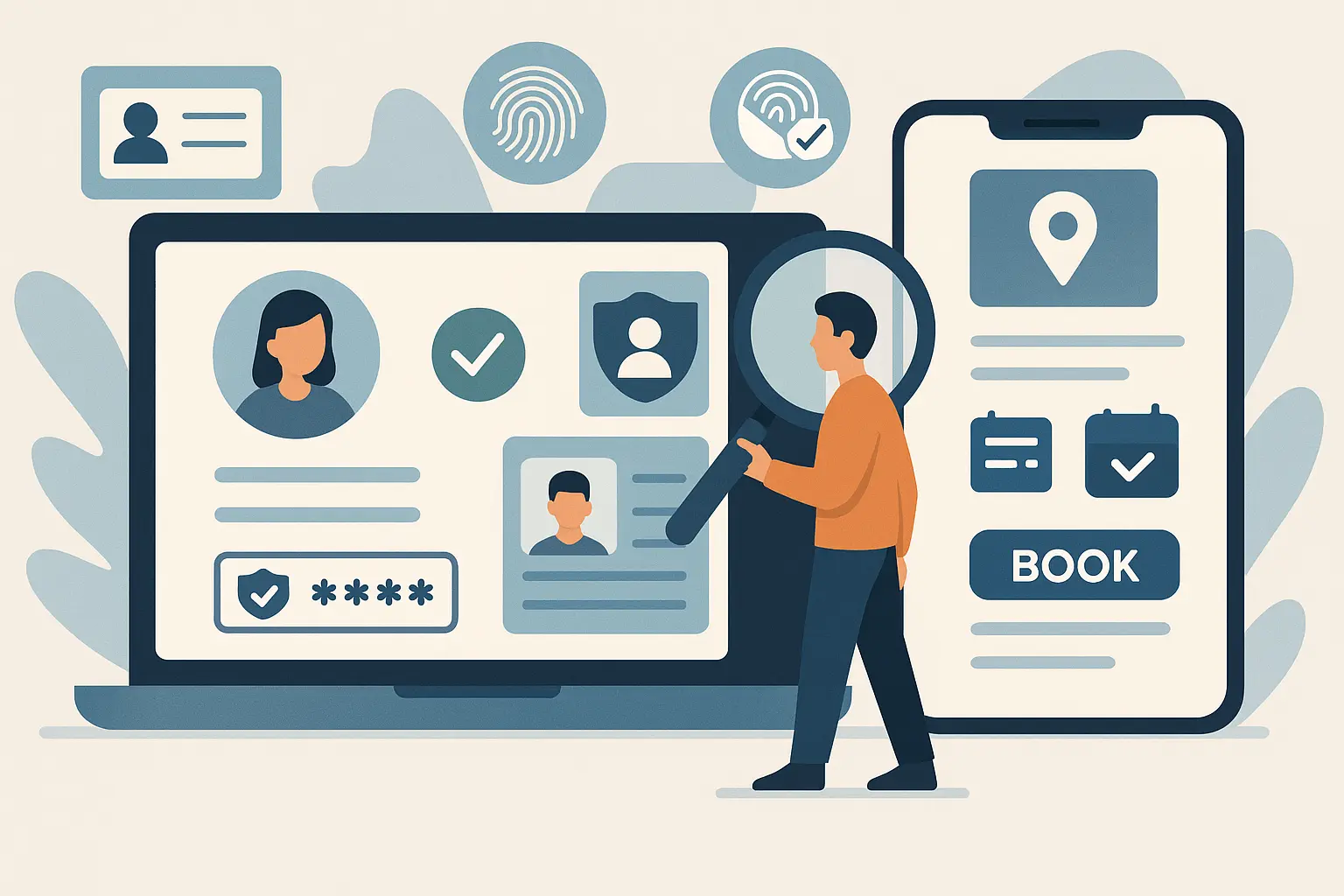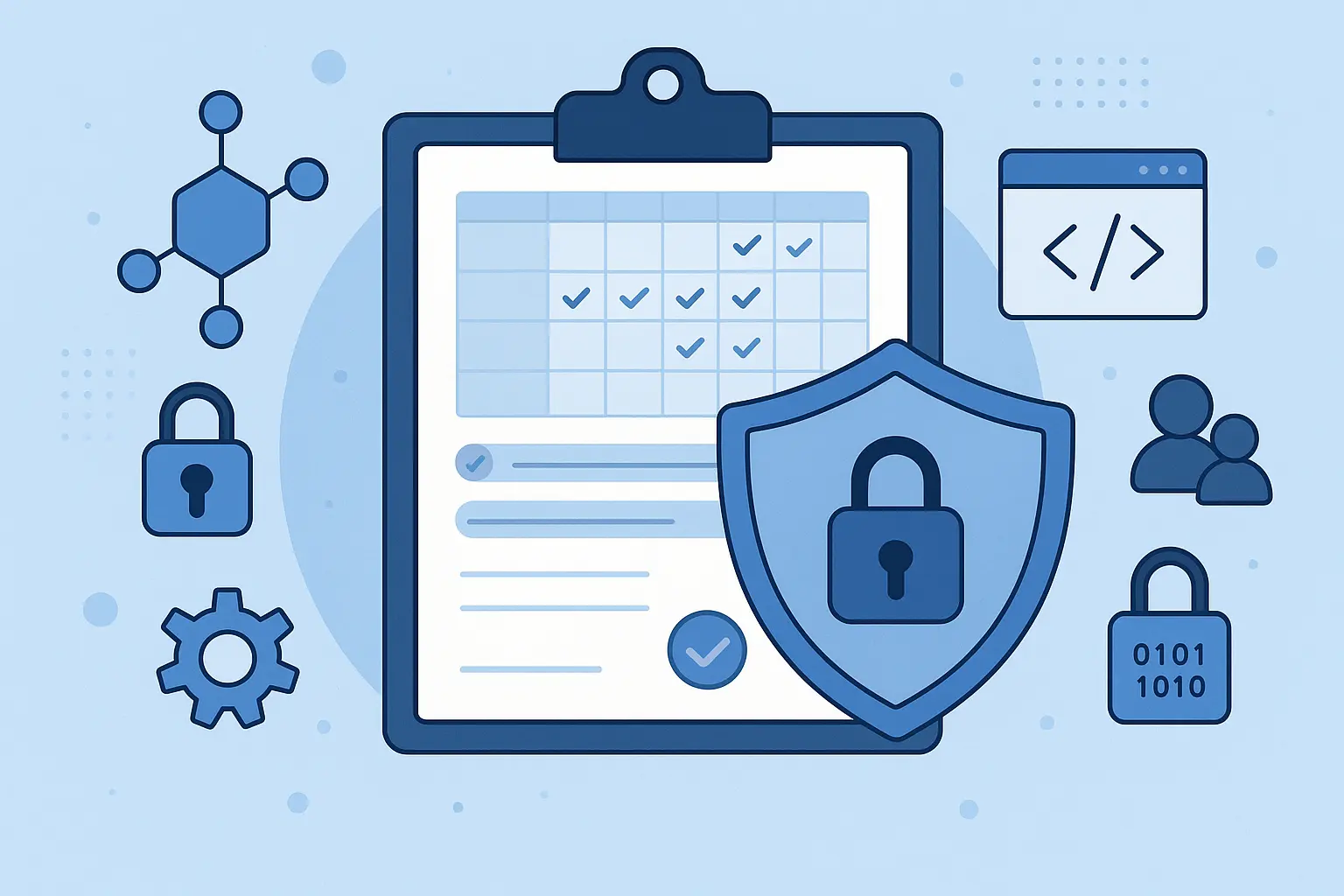In today’s digital age, appointment scheduling software has become indispensable for businesses and individuals. Its convenience and efficiency are undeniable. However, amidst the ease and efficiency it brings, data security is a big concern that you must recognize. This article looks deeper into the significance of data security in appointment scheduling software and explores the measures necessary to keep your valuable information safe.
What Data Is At Risk?
Appointment scheduling software typically collects and stores various types of data, including:
- Personal information: Names, contact details like phone numbers and emails, addresses
- Appointment details: Date, time, service type, notes
- Payment information: Credit card details are often used for online payments
Consequences of a Data Breach
A data breach in appointment scheduling software can expose sensitive user data to unauthorized individuals, leading to several risks, such as identity theft. Hackers can use your stolen personal information for fraud. It can also expose you to spam and phishing attacks, as exposed email addresses become targets for unwanted messages and potential scams. If payment information is compromised, users risk unauthorized charges.
Additionally, negative publicity surrounding the breach can tarnish the organization’s reputation, leading to a loss of current and potential clients. Customers lose trust in the company’s capability to protect their sensitive information.
Security breaches often result in significant financial losses for businesses. They have to spend money investigating the breach, notifying affected individuals, and providing credit monitoring services. As customers are lost and sales decrease, revenue also goes down. Depending on the severity of the breach and the data compromised, hefty fines from regulatory bodies may also be imposed. Customers affected by the breach may take legal action against the business, resulting in hefty legal fees.
Choosing Secure Appointment Scheduling Software
Here’s what to look for when selecting secure appointment scheduling software:
- The software should encrypt data at rest (stored) and in transit (being transmitted). You should look for software that complies with industry-standard encryption protocols like AES-256.
- Compliance with HIPAA (healthcare) or GDPR (Europe) might be necessary depending on the data collected, as it demonstrates a commitment to protecting user privacy and sensitive information.
- The software should support multi-factor authentication (MFA) to verify user identities before granting access. Additionally, robust access control mechanisms should be in place to restrict user privileges based on roles and responsibilities.
- The company must be well-reputed. Research the software provider’s track record on data security. Look for positive reviews and a history of addressing security vulnerabilities promptly.
- Ensure the software provider has a clear policy for securely disposing of data when it’s no longer needed.
- Data Loss Prevention (DLP) systems can prevent accidental data leaks by monitoring and restricting the transfer of sensitive information. They do this by encrypting, quarantining, blocking, or alerting when they detect an unauthorized data transfer or access attempt.
- Sensitive information like credit card details can be masked within the software, only revealing the last few digits when necessary. Data masking keeps sensitive data secure and confidential, especially when it has to be used for testing, development, or analytics purposes where the actual data is not required.
- The software should maintain comprehensive audit logs and record user activities. These can include logins, changes to appointments, and access attempts. Real-time monitoring of these logs enables administrators to promptly detect and respond to suspicious behavior.
- Choose software providers who prioritize security by releasing regular updates and patches to address known vulnerabilities. Prompt application of these details helps mitigate the risk of cyberattack exploitation.
- Ensure the software includes robust data backup mechanisms to prevent data loss during system failures or security incidents. Additionally, having a well-defined disaster recovery plan ensures swift service restoration in case of disruptions.
The Role of a Wi-Fi Connection in Data Security
We can not overlook Wi-Fi’s role in data security relevant to appointment software. Like encryption protocols and secure data in transit, it’s essential to define Wi-Fi and its significance in maintaining the confidentiality and integrity of sensitive information exchanged through these platforms.
Businesses should look into employing security measures within Wi-Fi networks where appointment scheduling software operates. Secure Wi-Fi networks, such as those protected by authentication mechanisms like WPA3 (Wi-Fi Protected Access 3), alongside encryption standards like WPA2-Enterprise, add defense against potential cyber threats. Additionally, implementing Wi-Fi network segmentation and monitoring tools can mitigate the risk of unauthorized access and data interception within the network environment.
Continuous Monitoring and Threat Detection
With hackers getting craftier and cyber threats continuously evolving, it’s crucial to stay ahead with proactive steps like continuous monitoring and threat detection mechanisms. Security systems can work together to collect information from different places, such as user input or online forms, and analyze it all at once. This gives organizations a clearer picture of potential security issues and helps them decide which ones to address first.
With real-time monitoring of system activities, user behaviors, anomaly detection, and automated alerts, your systems can swiftly respond to potential security breaches, minimizing the impact of malicious incidents. By monitoring for indicators of compromise (IOCs) and security alerts, organizations can identify and contain security incidents in their early stages, minimizing the impact on business operations and data integrity and allowing for timely remediation and fortification of the security posture.
Threat detection systems also identify malware infections, phishing attempts, and other cyber threats that may target the appointment booking software or its users. By scanning for known malware signatures and behavior patterns indicative of malicious activity, organizations detect and remove threats before they cause harm.
User Education and Awareness
Beyond technological safeguards, user education plays a vital role in strengthening overall security. As a business, you should educate users about:
1. Recognizing Phishing Attempts
Businesses should give their users a comprehensive rundown of the best data and password protection practices and how to recognize phishing attempts.
As a user, It’s essential to learn to recognize potential phishing attempts through suspicious emails, links, and attachments appearing to be from the software provider that may be used to steal login credentials or install malware. This knowledge will help them act as the first line of defense against cyber threats.
2. The Best Data Privacy Practices
Users should be given guidance on the best data privacy practices to help them understand the importance of protecting their personal information. They must learn to be selective about which information they share.
Encourage them only to provide the information necessary to schedule appointments and create unique and complex passwords for appointment-scheduling accounts. Regularly review the privacy policies to understand how the software uses and stores data.
3. Secure Communication Practices
Educate users on secure communication practices. They must encrypt sensitive messages and verify the identity of recipients to prevent data leakage and unauthorized disclosure of confidential information.
By mastering secure communication protocols, individuals safeguard sensitive data against interception and unauthorized entry. Additionally, users must recognize the importance of promptly reporting security breaches, such as suspicious activities or unauthorized access attempts. This will facilitate organizations’ swift response to potential threats.
Conclusion
Data is the lifeblood of businesses and individuals. The importance of keeping it secure cannot be emphasized further. While it has revolutionized how businesses manage appointments, appointment scheduling software has to prioritize data security as a non-negotiable aspect. By integrating strong security features, holding up to encryption standards, and fostering a culture of security awareness, appointment scheduling software can uphold its promise of convenience while ensuring that user data remains safe and protected from emerging cyber threats.








